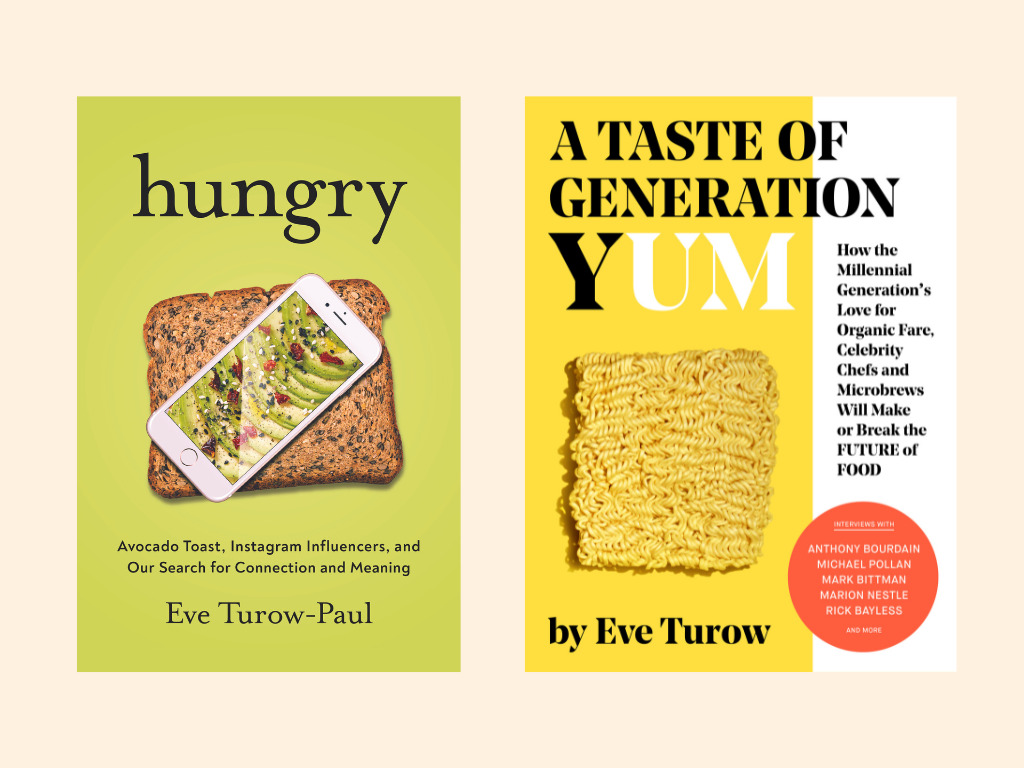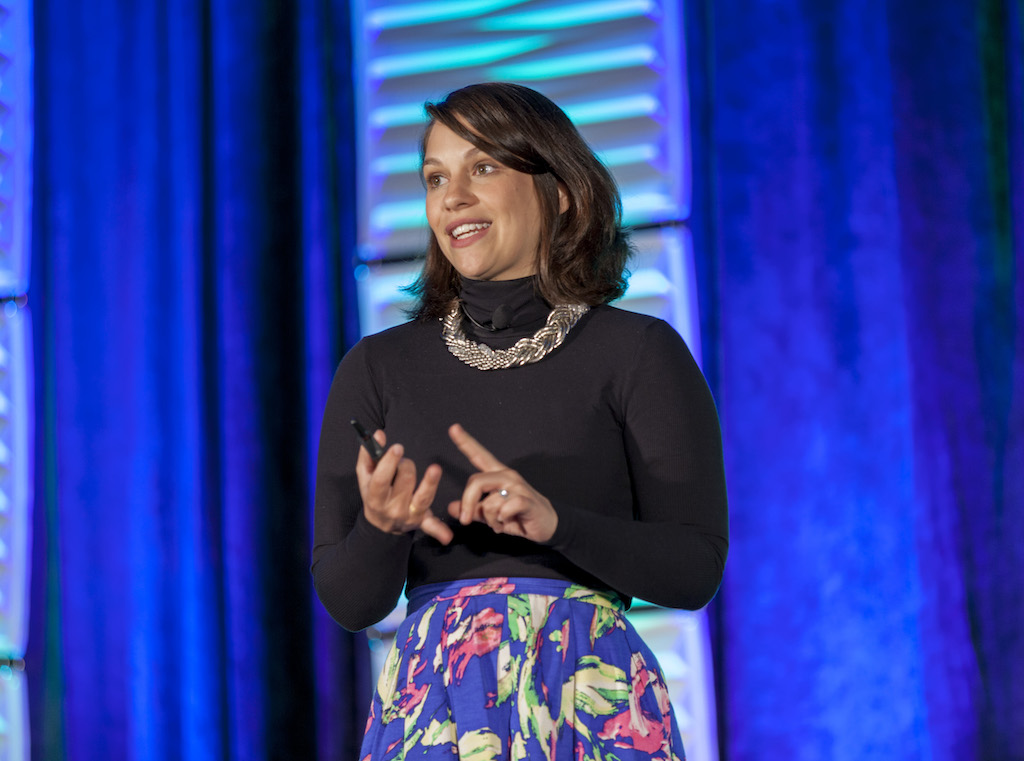Food Culture Expert Eve Turow-Paul of Food For Climate League: ‘Small Changes To Menu Language Can Dramatically Impact Consumer Choice’
6 Mins Read
Green Queen‘s Sonalie Figueiras interviews non-profit founder and food culture expert Eve Turow-Paul about food, climate and how to empower people to change what’s on their plate for a more sustainable future.
Author, consultant and food culture expert Eve Turow-Paul is on a mission to reframe the food and climate narrative and empower consumers and corporates alike around the major issues facing our food system.
In 2019, she founded Food for Climate League, a female-led non-profit with funding from Food@Google. The organization is on a mission to democratize sustainable eating and empower folks towards climate-smart eating using campaigns, toolkits and activations designed to use behavioral change theory.
Green Queen‘s Sonalie Figueiras talks to Turow-Paul about what the biggest barriers around people’s understanding of food and climate are, the most surprising things she has learned in her journey, what’s next for Food for Climate League, the challenges of non-profit fundraising, the importance of diverse voices at the table and why our brains are not designed to think about the climate crisis.
What are the biggest barriers to get people thinking about climate issues when it comes to food?
Eve Turow-Paul: There are several major barriers to connecting the topics of food and climate, the most important of which is that food is comfort and joy; food is also identity. And most people don’t want to think about the apocalypse while they’re eating. Food is an extremely emotional topic. And then you get to the climate crisis, which is immensely complex from a psychological standpoint. Climate psychology is its own subsection of research, and there are a lot of really interesting insights around the fact that we, as Homo Sapiens, didn’t evolve to think about something as amorphous and future-focused as the climate crisis. So, in this work, we are combining two deeply emotional and complex issues and trying to figure out how to talk to people about it in a way that will motivate them to take action, rather than shut down.
Are the barriers city/culture-specific? Does every country/city need its own policies or are there systems and toolkits that can work anywhere?
Eve Turow-Paul: This is a great question. Every culture has its own relationship to nature, to others, and to food. But human psychology remains the same no matter location, race, or socioeconomic status. The communications around these issues absolutely needs to fit the culture and context of the individuals to whom you are speaking. But there are some basic do’s and don’ts on how to talk about food and climate (and here I’ll plug our own report on this topic!).
Has the conversation around climate and food changed over the past few years? Why? Are we further ahead than you would have thought, or further behind?
Eve Turow-Paul: The conversation around climate and food has changed dramatically over the last few years. When I started this work they were very few people who really understood the connection between the two topics. Now, we’re seeing food show up at COP27, it’s entering more mainstream policy conversations as well. I’m also noticing family and friends discussing things like food waste and meat consumption more often. I expected there to be greater communications from the US government around the connection between food and climate, but beyond this shortfall, I have been pleasantly surprised by the progress this movement has made just in the last 3 years.

What are the most surprising things you’ve learned in your FCL work?
Eve Turow-Paul: Through Food for Climate League, I’ve been able to build up my own expertise in the research around behavioral design. I have learned an endless number of things about human behavior, specifically around motivating sustainable behavior choices, which I’m endlessly fascinated by. Some of the most surprising things relate to the huge impact very small changes in our environment can make on human behavior. Very minor shifts in choice architecture—meaning the choices that people are presented with, or even the choices that people are presented with first rather than at the end of an interaction—have a profound impact on decision-making. Social norms, as well, play a huge role in what people decide to do or not to do (see the now well-known case study with energy bills). In many ways, this issue is deeply complicated, and in other ways, it’s absurdly simple. Many of the changes that we need to make are not cost-intensive, or even ones that would be particularly effortful. Most of the time, we can change the environment and people don’t even seem to take much notice. And this makes me hopeful. It’s not super risky for businesses to shift to more sustainable options.
What have been the biggest successes for FCL to date?
Eve Turow-Paul: I’m proud to say that we’ve had several wins over the last 3 years of our organization’s existence. The biggest win is simply bringing the topic of food and climate communications to the forefront for city leaders and decision-makers within corporations as well as nonprofits. I have heard from many people that there is more consideration of how this issue is discussed both internally and externally. In addition, through our research projects, we have been able to show large foodservice operators that small changes to menu language can dramatically impact consumer choice and drive sustainable food choices, without compromising consumer satisfaction. We have also been able to show the power of addressing diversity, equity, and inclusion issues with food and sustainability issues. The reality is that all of these topics are intimately and intricately intertwined, and there is so much to be gained by connecting the dots between them. We have been able to show, through our research, that if people can see themselves and their values and their cultures within sustainable food culture, they are very likely to participate in it themselves.
Looking ahead to 2023, what are you most excited about? What do you hope will be your biggest wins/are your biggest goals for FCL?
Eve Turow-Paul: In 2023, I hope that Food for Climate League will be able to conduct more field research. We are a small organization that launched just before the Covid-19 pandemic began, and I’m proud of what we’ve been able to accomplish during this period of time. But, there have also been limitations on the type of research we can do. I’m very excited to get out into the field and test more of our theories in person. I hope, within this year, we are able to develop additional case studies and proof points to the many ways to drive sustainable food behaviors through simple shifts in communications and behavioral design. I am also eager to broaden our ecosystem of thought partners and collaborators. I hope to develop new relationships and learn from people who are working on these issues with and among Indigenous communities, low-income communities, and communities of color, in general, who are disproportionately impacted both by the climate crisis and food inequality.
Given the market challenges (Ukraine, recession, layoffs, inflation)- how are you approaching fundraising?
Eve Turow-Paul: In this time of unrest, I believe that philanthropic givers are eager to see a return on their investment. Philanthropic giving, to me, is not so unlike venture capital. These days, people want to see a direct effect and the impact of the dollars that they’re putting towards a philanthropic effort. And I think, in this type of financial environment, that makes complete sense. People want to know that they are making an impact through their choices. And I also think that a growing sense of anxiety and doom, as it relates to the climate crisis, has people eager to see change happen quickly.
What do you wish the average person would realize about food and climate that most folks don’t?
Eve Turow-Paul: Each of us, as eaters, has the power to collectively address the climate crisis. We don’t need to wait for governments or corporations to take action. The most impactful ways to address the climate crisis are all related to our own personal food choices, be it how much food we waste in our own homes, or how much meat we choose to consume. The issue of the climate crisis feels like something we have no control over, but the reality is that each of us plays a critical role. We can each make rather simple changes to our lifestyles that, if done at a large enough scale, can literally change the world. And we’ll save money, improve our nutrition, and eat some ridiculously delicious food at the same time!
Disclosure: Sonalie Figueiras is an advisor to Food for Climate League.





